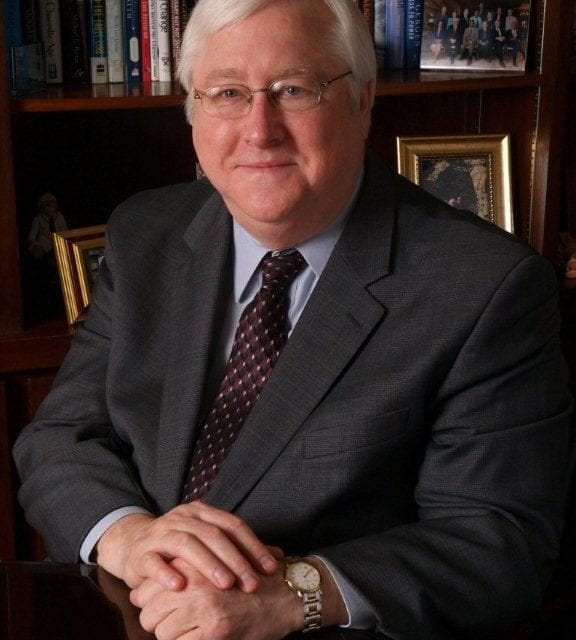Ron J. Anderson, M.D., president and CEO of Parkland Health and Hospital System for 29 years, died Thursday, Sept. 11 of cancer. He was 68 years old. As of Friday morning, services were pending.
Anderson took over as head of Parkland in 1982, when he was 35 years old and when the AIDS epidemic was in its early days. Anderson was head of the county hospital when, in the late 80s, the Dallas Gay and Lesbian Alliance (then called Dallas Gay Alliance) and Ron Woodruff of Dallas Buyers Club fame, filed — and won — the lawsuit that forced Parkland to treat people with HIV.
Anderson was named president and CEO after serving two years as medical director of the hospital’s emergency room and outpatient clinic and head of the University of Texas Southwestern Medical Center’s Division of Internal Medicine. He retired from Parkland in 2011, after spending his last years with the hospital leading the bond campaign that brought in public financing for the new $1.3 billion facility due to open next year.
In the mid-1980s, Anderson grabbed national attention when he spoke out against the practice — called patient dumping — of transferring medically unstable patients from private hospitals to public hospitals based on the patient’s ability or inability to pay, leading to passage of state laws regarding indigent care in Texas and later federal legislation banning patient dumping.
According to a press release from Parkland announcing his death, Anderson was known as an advocate of universal health care and for leading development of Parkland’s Community Oriented Primary Care health centers. He came to national attention again in the mid-1990s as a spokesperson in the movement for better confidentiality regarding the patient/physician relationship.
Anderson once said, in a speech to a UT Southwestern graduating class, “It is not enough just to try ‘to do good’ and try ‘to avoid evil,’ although these are the ethical keystones of the physician/patient relationship. We cannot be paternalistic toward patients and must accept their cultural, religious, ethnic and social differences. We must respect our patients’ autonomy and desire for wholeness, which should stimulate us to address the social justice issues affecting our patients’ lives.”



